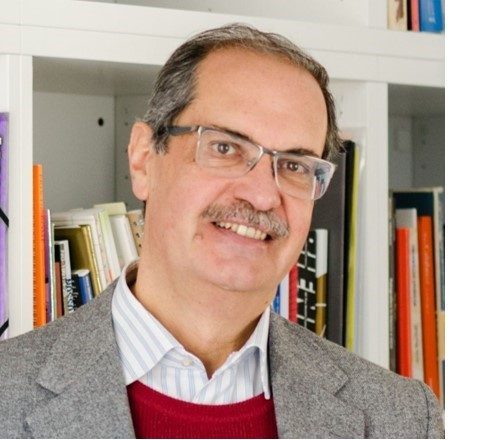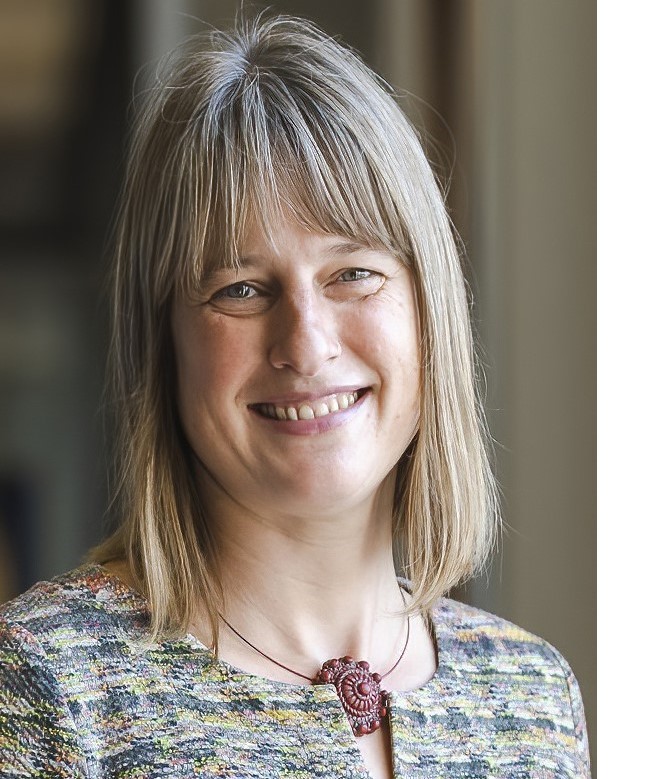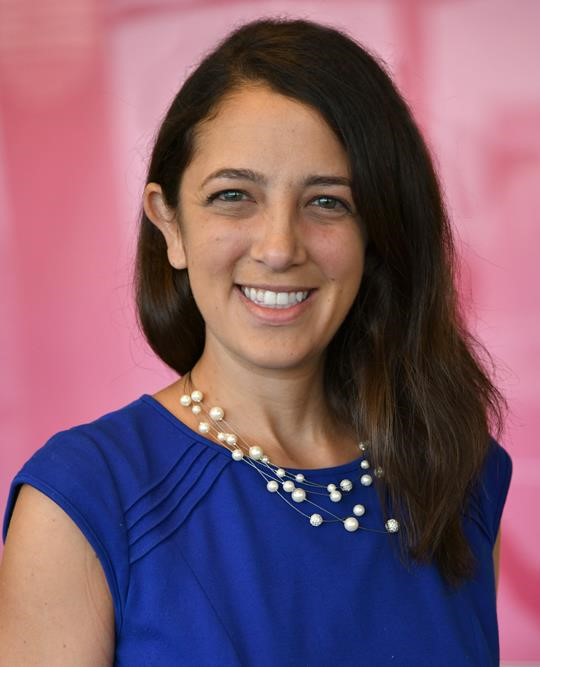2024 Prize Laureates
2024 Celiac Disease Foundation Prize for Excellence in Celiac Disease Research
Riccardo Troncone, MD
 Professor Riccardo Troncone is Full Professor of Pediatrics at the Department of Medical Translational Sciences of the University Federico II, Naples, Italy. He is Director of the “European Laboratory for the Investigation of Food-Induced Diseases” at the same University. Past President of the International Society for the Study of Coeliac Disease (ISSCD) and of the European Society of Pediatric Gastroenterology, Hepatology and Nutrition (ESPGHAN), Professor Troncone is Associate Editor of Journal of Pediatric Gastroenterology and Nutrition (JPGN).
Professor Riccardo Troncone is Full Professor of Pediatrics at the Department of Medical Translational Sciences of the University Federico II, Naples, Italy. He is Director of the “European Laboratory for the Investigation of Food-Induced Diseases” at the same University. Past President of the International Society for the Study of Coeliac Disease (ISSCD) and of the European Society of Pediatric Gastroenterology, Hepatology and Nutrition (ESPGHAN), Professor Troncone is Associate Editor of Journal of Pediatric Gastroenterology and Nutrition (JPGN).
Professor Troncone was trained in Pediatrics in Naples. Subsequently he spent a year at the Clinical Immunology Unit of the University of Florence under the supervision of Professor Sergio Romagnani working on the regulation of IgE production in atopic subjects. He then spent two years at the Gastrointestinal Unit of the University of Edinburgh under the supervision of Professor Anne Ferguson completing his education as mucosal immunologist. Already at that time he gave contributions on the induction of oral tolerance to gluten and explored the possibility of an animal model of gluten-induced enteropathy. After his return to Naples he continued his work on celiac disease under the supervision of Professor Salvatore Auricchio, both on clinical and immunological themes. In the last decade his interest has been mainly focused on potential celiac disease with the creation of a large cohort of patients that has allowed the definition of the natural history of the condition, including biomarkers predicting the evolution, and of the mechanisms leading to villous atrophy. The other area has been prevention: he has been co-chair of the preventCD project, the first attempt to prevent celiac disease in at-risk infants through the induction of tolerance. That cohort has also allowed the identification of risk factors and of predictive biomarkers, as well as the definition of the natural history of celiac disease.
2024 Celiac Disease Foundation Young Investigator Prize in Basic Science
Iris H. Jonkers, PhD

Dr. Jonkers is Associate Professor at the University Medical Center Groningen, the Netherlands, leading the Immunogenetics group to identify and understand the genetic and environmental factors that contribute to the “perfect storm” that leads to celiac disease. She started her career studying gene regulatory mechanisms using molecular and genomics techniques during her PhD at the Erasmus Medical Center (Rotterdam, Netherlands) and her postdoc at Cornell University (Ithaca, NY). Eager to contribute to more clinically relevant topics, she moved on to using state-of-the-art genomics techniques to translate genetic associations to biologically relevant insights in celiac disease. She developed her own research-line at the UMCG Genetics Department, supported by several Dutch personal grants. To understand how genetics impact celiac disease pathways in a cell-type- and context-specific manner, she used immune and epithelial cells from intestinal biopsies and analysed them at transcriptional, genetic and epigenetic level. She has identified the response of celiac disease-specific cells to cytokines and disease state, genetic variants involved in these processes and uncovered patient-specific heterogeneity in CeD. She also carried out the largest targeted genetic analysis for celiac disease, leading to prioritisation of genes involved in celiac disease. Using patient-specific cohorts, she identified biomarkers (microRNAs, immune cell populations and gene expression profiles) and environmental factors (microbiome composition and function alterations) associated with celiac disease. Lastly, to investigate the impact of these environmental and genetic factors further, Dr. Jonkers has generated a human celiac disease intestine-on-chip model, steering the work of the group towards discovery of disease mechanisms and preventive interventions and treatments. Dr. Jonkers is a passionate educator and is program director of the Biomedical Sciences MSc program of the University of Groningen. Moreover, she is a strong advocate for celiac disease research worldwide and treasurer of the International Society of the Study of Celiac Disease (ISSCD).
2024 Celiac Disease Foundation Young Investigator Prize in Clinical Science
Marisa Stahl, MD, MSCS
 Marisa Stahl, MD, MSCS is an assistant professor of pediatrics at the University of Colorado School of Medicine, the director of research for the Colorado Center for Celiac Disease at the Children’s Hospital of Colorado, and Co-Investigator of the Autoimmunity Screening for Kids (ASK) study and the Human Trisome Project (HTP). Dr. Stahl’s research program focuses on the outcomes of screening-identified celiac disease autoimmunity in the ASK study and the genetic underpinnings of celiac disease and screening strategies in individuals with Down syndrome in the HTP. She is also a member of the Celiac Disease Committee in The Environmental Determinants of Diabetes in the Young (TEDDY) which addresses genetic, environmental, and other risk factors that contribute to celiac disease development. Her collaborations, including for the Celiac Disease Foundation Young Investigator Award, have also targeted advancing celiac disease clinical and translational science by helping to validate minimally invasive testing strategies such as single dose gluten challenge, IL-2 response, and the feasibility and tolerability of transnasal endoscopy in pediatric populations. Dr. Stahl’s research efforts strive to advance knowledge needed for future celiac disease screening policies, earlier detection of celiac disease, and personalized screening and preventive strategies for pediatric celiac disease.
Marisa Stahl, MD, MSCS is an assistant professor of pediatrics at the University of Colorado School of Medicine, the director of research for the Colorado Center for Celiac Disease at the Children’s Hospital of Colorado, and Co-Investigator of the Autoimmunity Screening for Kids (ASK) study and the Human Trisome Project (HTP). Dr. Stahl’s research program focuses on the outcomes of screening-identified celiac disease autoimmunity in the ASK study and the genetic underpinnings of celiac disease and screening strategies in individuals with Down syndrome in the HTP. She is also a member of the Celiac Disease Committee in The Environmental Determinants of Diabetes in the Young (TEDDY) which addresses genetic, environmental, and other risk factors that contribute to celiac disease development. Her collaborations, including for the Celiac Disease Foundation Young Investigator Award, have also targeted advancing celiac disease clinical and translational science by helping to validate minimally invasive testing strategies such as single dose gluten challenge, IL-2 response, and the feasibility and tolerability of transnasal endoscopy in pediatric populations. Dr. Stahl’s research efforts strive to advance knowledge needed for future celiac disease screening policies, earlier detection of celiac disease, and personalized screening and preventive strategies for pediatric celiac disease.
Dr. Stahl completed her medical degree at Northwestern University and her pediatric residency at the University of North Carolina. Her career in celiac disease began as a pediatric gastroenterology fellow at the Children’s Hospital Colorado examining geographic variation in disease incidence in the TEDDY study and screening outcomes in the ASK study. She also currently serves as secretary on the Society for the Study of Celiac Disease (SSCD) executive council.
